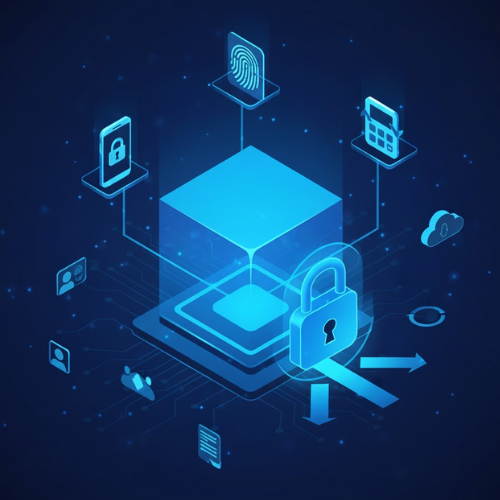 QED
QED
 English
English

 All Blogs
All Blogs

Multifactor authentication systems: The Key to Safer Digital Access
The advent of digital transformation has created new opportunities for both businesses and consumers, but it has also generated cybersecurity concerns. Data breaches, identity theft, and unauthorized access are now common concerns. Traditional password methods are no longer enough for protecting vital information. Multi-factor authentication solutions may be particularly useful in this situation. By requiring several forms of verification, MFA ensures that only authorized users have access to critical accounts and services.
Multifactor authentication solutions are designed to provide additional layers of protection to typical password credentials. Authentication is based on combining two or more methods of verification.
Knowledge Factors : Passwords or PIN
Possession factors : include mobile devices, tokens, and smart cards.
Inherent elements : Biometrics, such as facial recognition or fingerprints.
Even if one layer is compromised, hackers cannot get access without the other aspects, making multi-factor authentication one of the most secure methods of identity verification available.
Cybercriminals are utilizing increasingly complex techniques, such as phishing assaults and credential stuffing, placing organizations at constant danger. Passwords can be stolen or guessed, but MFA offers a strong defense against such attempts. Multi-factor authentication solutions are no longer optional; they are an essential component of modern cybersecurity strategies.
Businesses that employ MFA not only protect themselves, but also convey a strong sense of trust to their customers. Consumers expect assurance that their personal information is secure, and MFA provides just that.
Advanced authentication solutions are designed to work with a wide range of systems, applications, and devices. They integrate seamlessly with enterprise apps, cloud services, and mobile platforms. Businesses that use a flexible authentication platform may enforce strong security without creating unnecessary barriers for users.
These solutions offer tailored alternatives to MFA, including as push notifications, biometric scans, and one-time codes, making it more convenient and user-friendly.
The next generation of multi-factor authentication systems is being shaped by novel concepts. Some of the most prominent trends include:
These advancements aim to strike the perfect balance between strong security and a seamless user experience.
MFA adoption requires a plan in addition to technology. Each company has unique requirements based on its business, user base, and compliance responsibilities. Experienced professionals provide help to ensure that MFA is deployed effectively.
QEDVault has helped enterprises design authentication solutions that are both reliable and simple to use. By integrating solutions with business needs, they help firms increase their digital defenses without slowing down operations.
As cyber threats grow, multi-factor authentication methods have become an essential part of digital security. By requiring layered verification, they protect key systems, reduce risks, and boost user confidence. MFA, when combined with modern authentication platform capabilities, ensures maximum security while being seamless.
In the digital age, businesses that invest in MFA now are setting the framework for future resiliency. With the right approach, firms can protect data, follow rules, and maintain their customers' trust in the long run.
Start with a free trial and redefine trust with the digital product passport